Will Cortez is a community leader who knows how to work the inside-outside advocacy game better than almost anyone I’ve come across. He moved to the Portland region from the Philippines and became a U.S. citizen at the age of seven. When his parents got him a bike as a teenager (sort of as a punishment, which he talks about in the episode), Will caught the cycling bug and has never looked back.
Since his youth days in Hillsboro, he’s become a dedicated transportation advocate and an activist for inclusivity in all its forms — from helping Metro make ADA-accessible off-road trails for his day job, to volunteer racial justice organizing. A self-described “professional committee member”, Will has devoted countless hours to make sure government agencies around the region create infrastructure and policies that are not only good for bicycle riders, wheelchair users, and other non-drivers; but do it in a way that intentionally welcomes Black, Indigenous, and all people of color.
“Don’t speak about marginalized communities without asking them exactly what they need. Because we’ve seen examples of communities that we will deem historically marginalized, push back against having bike lanes… that is low on our list. We need these other things to happen first, right?”
After Will read our recent coverage of the BikeLoud PDX lawsuit, he sent me a message saying he was disappointed in the way the group framed one of the key rationales for wanting to force the City of Portland to build more bikeways: That neighborhoods with more lower income residents of color stand to gain the most from a legal victory. I wanted to understand more about why this concerned him, so we talked on the phone and I felt the conversation was worth taking more time to fully flesh out.
Will didn’t know it at the time, but it had been on my list to talk with someone about whether or not Portland’s cycling and transportation advocacy community has made substantive progress toward more racial diversity in the nearly three years since the George Floyd protests. As a news person, I know how issues and stories fade quickly once they’re not longer in the headlines. And with so much rhetoric in Portland about racism and racial equity the past few years, I wondered if folks had fallen back into the comfort of the status quo.
Will joined me for an interview in the BikePortland Shed on Tuesday (12/6) to talk through it all. We touched on not only the BikeLoud PDX lawsuit but also his experience as a volunteer on the Oregon Bicycle Racing Association’s Diversity, Equity, and Inclusion committee, his role as co-founder of BikePOC PNW and what its long-term goals are, why so many government advisory committees are still so white, and more.
If you want a better understanding of how racial inequity works in practice, why it’s so hard to make progress in Portland, and what it takes to be not just a person of color, but someone brave enough to step forward and be a community leader for racial justice and inclusivity, you do not want to miss this episode.



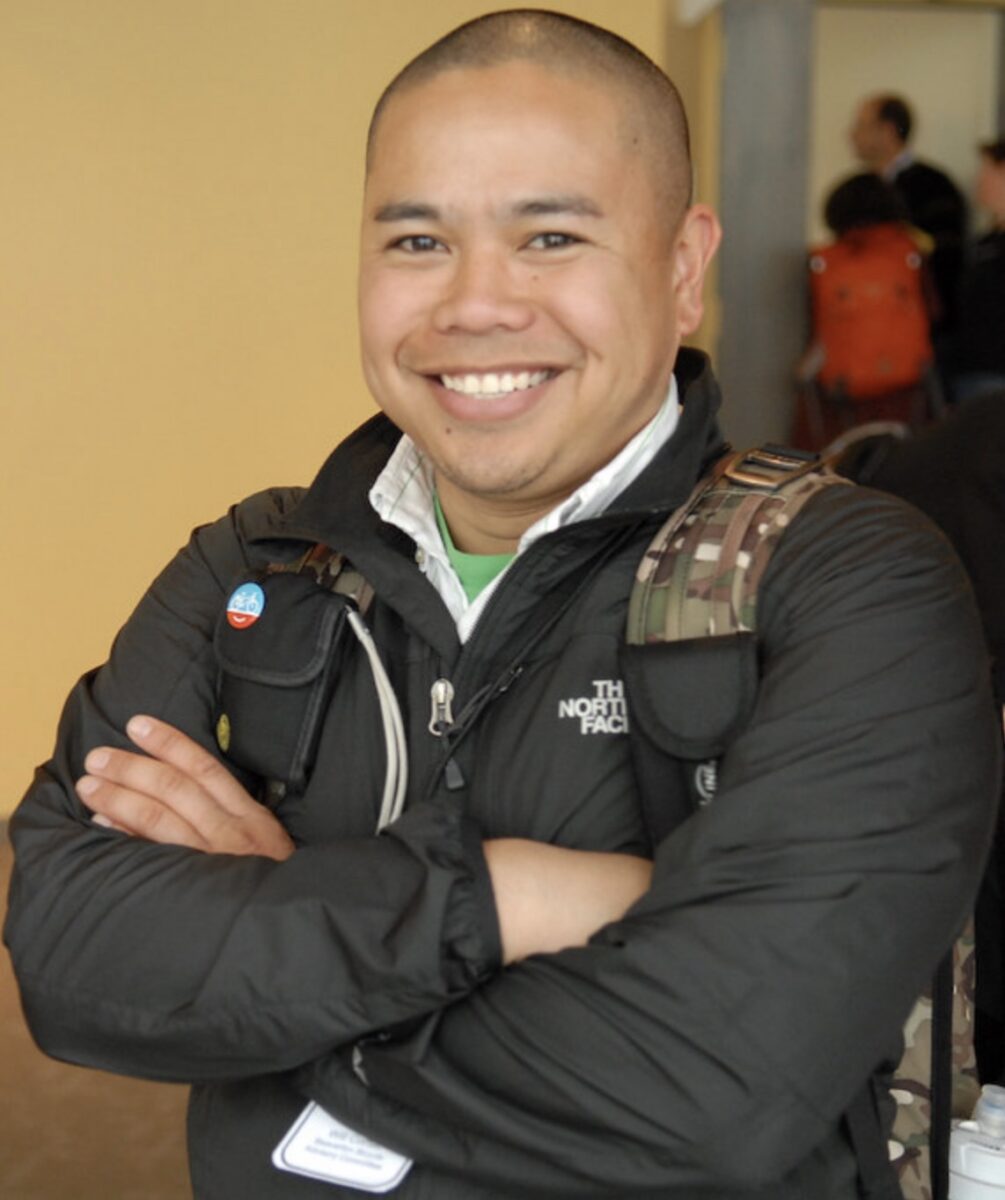
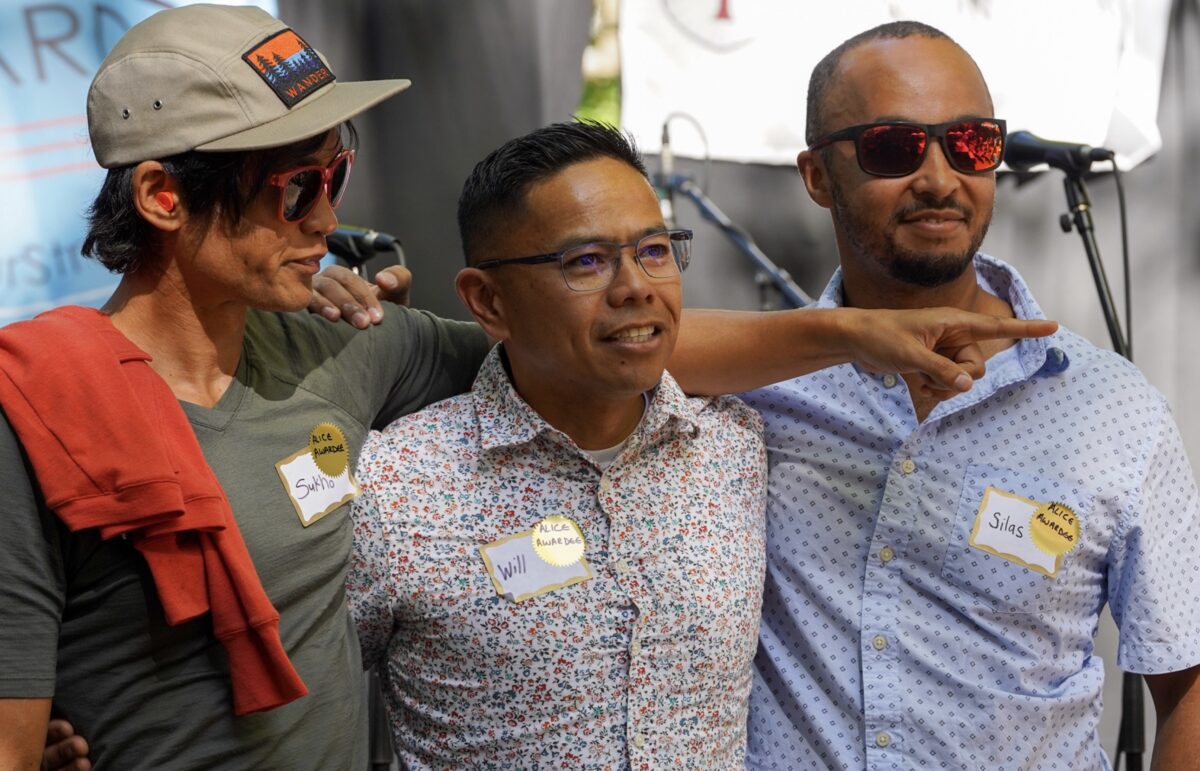
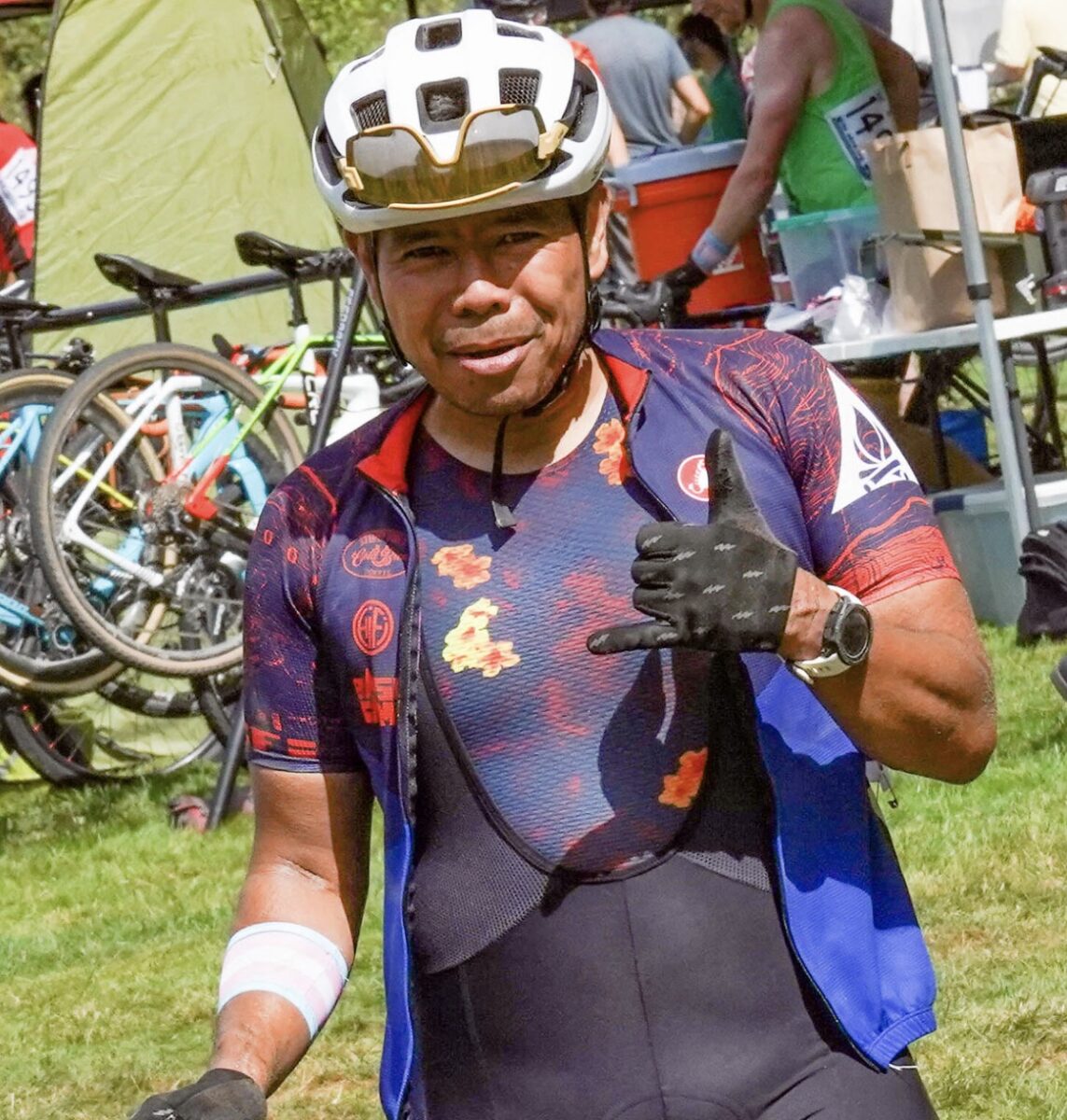
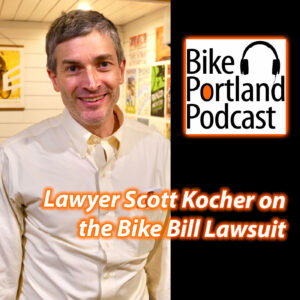
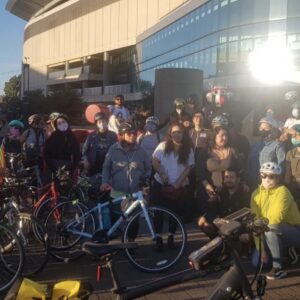
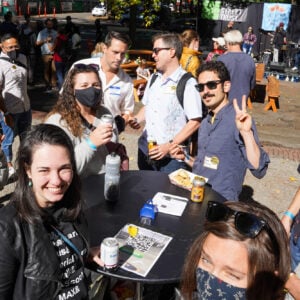
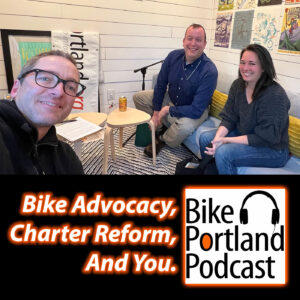
Thanks for reading.
BikePortland has served this community with independent community journalism since 2005. We rely on subscriptions from readers like you to survive. Your financial support is vital in keeping this valuable resource alive and well.
Please subscribe today to strengthen and expand our work.
Thanks Will and Jonathan for the episode! Not to speak for BikeLoud, but just as a single board member: Will’s criticisms are pretty valid as far as how we talk about and act for equity. I know we all can take what he said about intention and reflect on it to come up with more ways we can fulfill statements like the one highlighted when we announced the lawsuit against the City of Portland.
We are a grassroots group, and yes (it almost goes without saying) we have some shortfalls in our representation. One of those factors hindering our group is that we operate completely out of our spare time of our 9-5s, our commitments as mothers/fathers/caretakers, and a budget based entirely on donations.
We know as we grow, we can commit more time to making connections outside of these folks who have the privilege of their spare time, and listen with intent. We know we can do more mutual relationship-building with that growth.
Thanks again Will!
Thank you so much for doing this interview, Will and Jonathan. I listened to it this morning.
Your discussion about committee work touched upon some things that I’ve been thinking about recently, at least regarding the bureau committees.
How about that Charter Reform Committee?–give ’em a round of applause!
What was different about them? Their recommendations were binding with a super-majority vote. They didn’t need to convince a bureau or council, but were allowed to go straight to the voters with their work. I’m just tossing that out there, not pushing for it, or saying it’s appropriate for all committees. However, if govt committees were able to decide a few things, it might alter the committee selection process a little.
Portland eats volunteer time. But there is also a public good that results–we have a very informed public on many issues, especially transportation. Some of those committees end up being like seminars on specific topics; in exchange for advice and opinions, the volunteers receive information and education. One person we can thank for that is Earl Blumenauer, his idea of creating the PSU/PBOT transportation class was an intentional effort to foster a culture of communication between the bureau and the public.
Finally, one thing I’ve leaned from BP is that everybody in Portland feels unrepresented. That’s not to say that everyone is equally unrepresented, but it is a common perception and complaint. I am looking forward to seeing if the closer constituent representation possible with a 12-member council and the change from winner-take-all to a proportional system of voting changes that feeling.
And finally finally (and maybe more specific to this interview) is that I often find “equity” to be a poorly defined term. What does it mean? It’s hard to determine success, or improvement, without a precise meaning. With the govt bureaus, one can poke around in the prioritization formulas and discover how the goal of “equity” is translated into an empirical score. But outside of government, used simply as a fuzzy goal, without a clearly defined course of action, I agree with Will, it becomes buzzy.
There are so many barriers to cycling as a daily practice for so many people at so many levels, regardless of ethnic, sexual, economic, political or other background; therefore, I don’t think it is really that beneficial to single out and focus on any single group like this. My $0.02.
Would love to hear about all the barriers and layers of barriers you’re referring to and experiencing.
And more importantly, your thoughts on how to address said barriers.
Looking forward to connecting with you.
All the best FDUP!